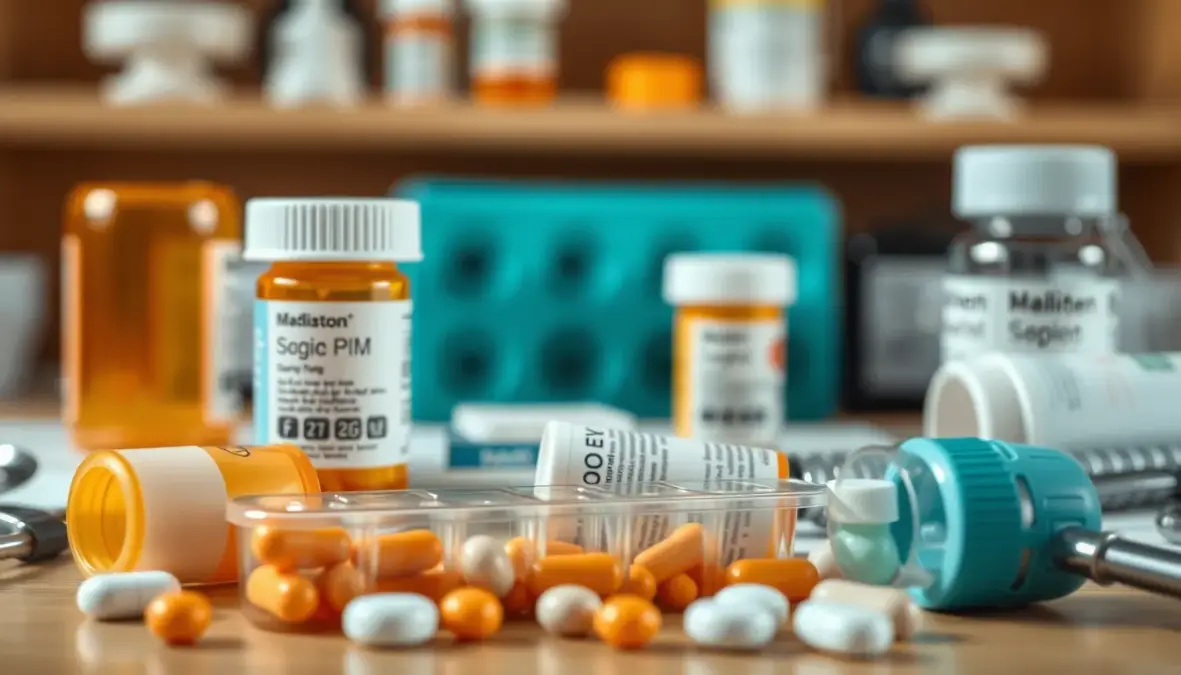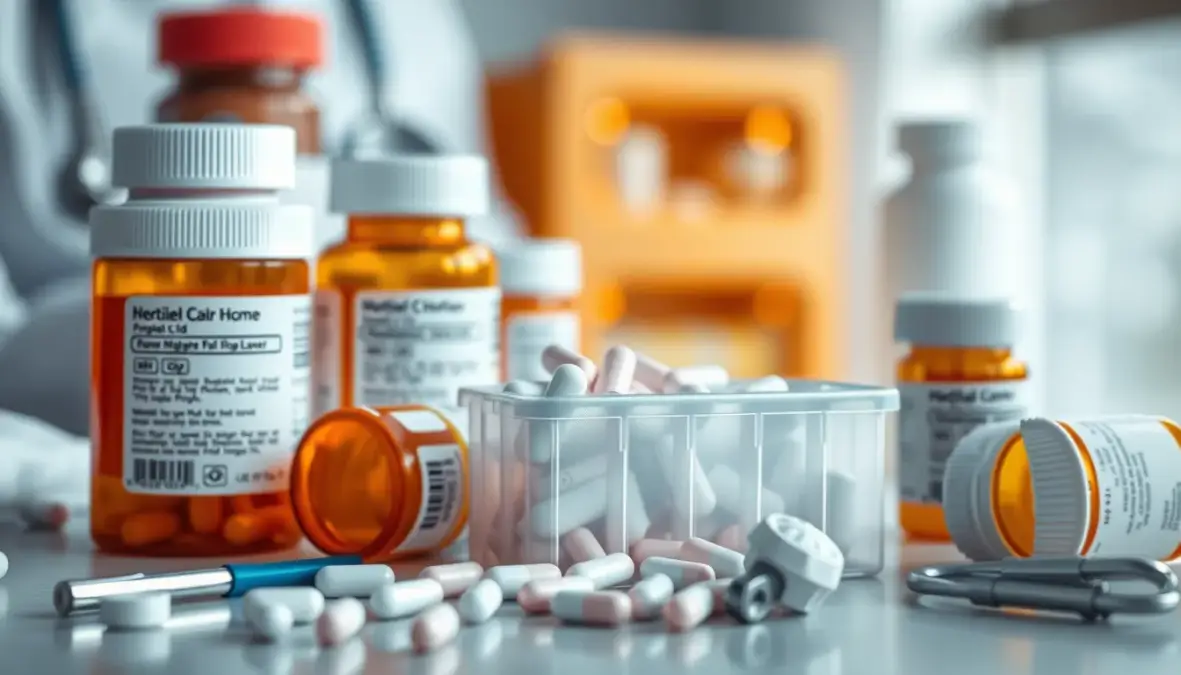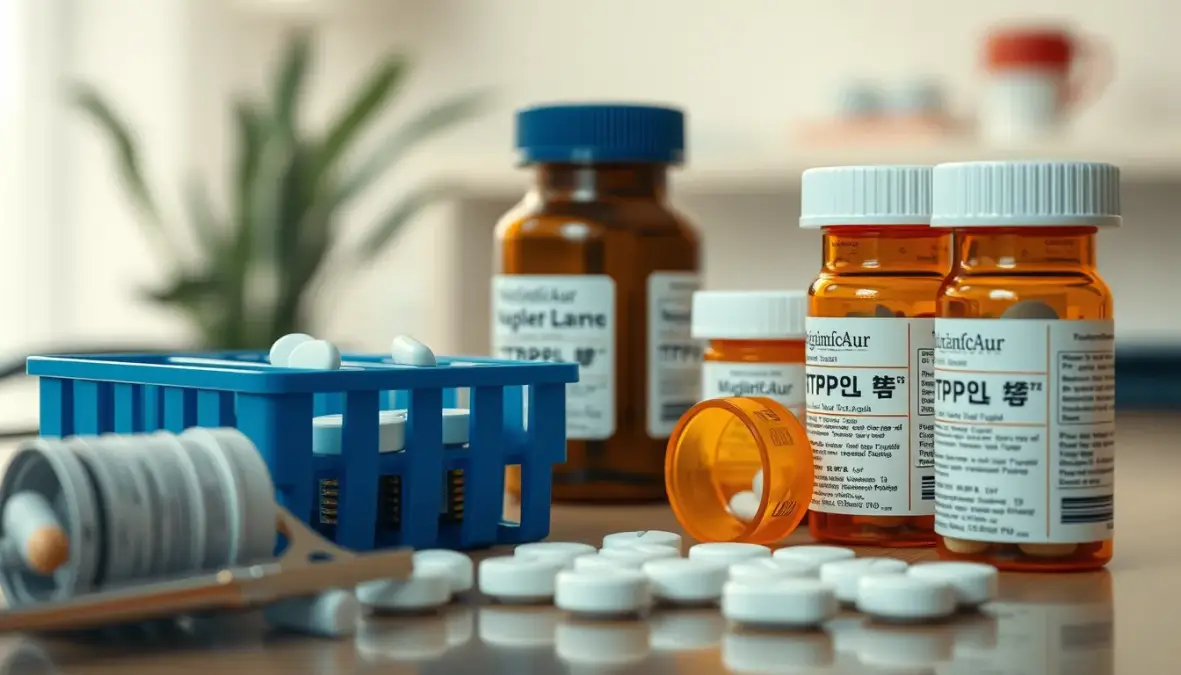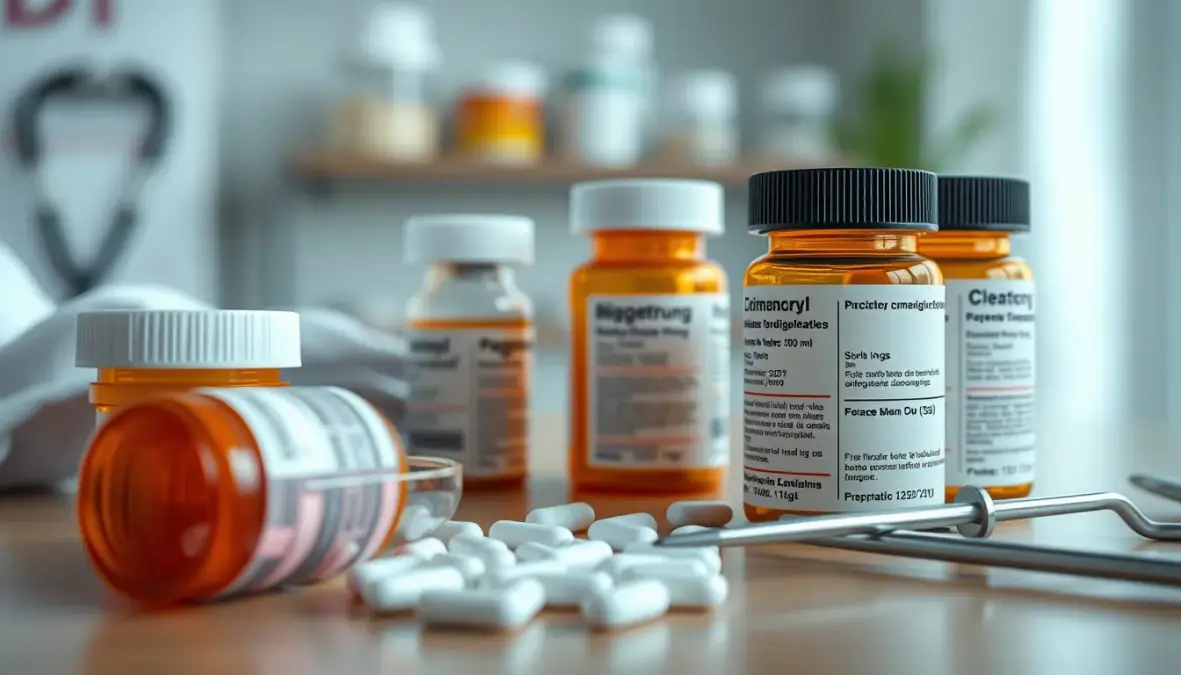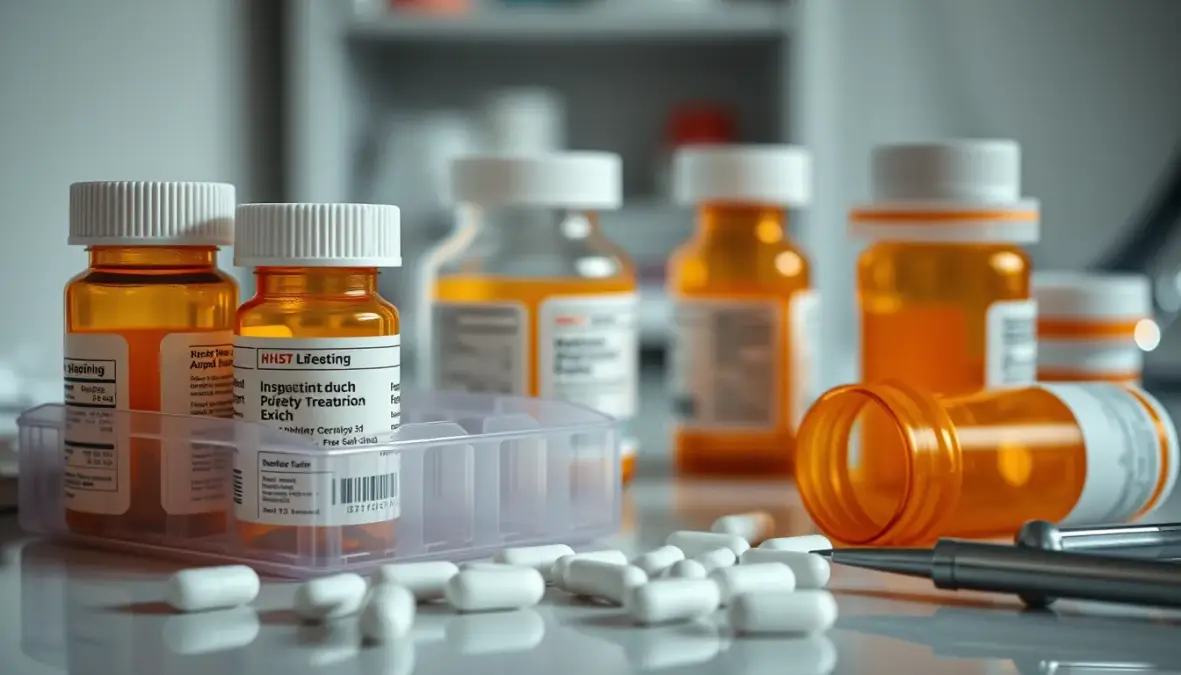In the modern world, combining medication with maintaining an active lifestyle has become a significant challenge for many. At Pharma Care, we understand that hobbies are an essential part of quality of life, so it is important to understand the relationship between medications and various hobbies. Can taking certain medications affect your ability to engage in favorite hobbies? What are some important considerations you should take into account? In this article, we will review the possible effects of medications on hobbies and offer practical recommendations.
The effect of medications on hobbies: an overview
Many medications can affect our physical and cognitive abilities in a way that directly affects our ability to engage in hobbies. The effect of medications on hobbies can manifest itself in a variety of ways – from impaired concentration to an impact on motor skills. It is important to know the possible effects in order to properly plan activities under medication.
Common side effects of medications that can affect hobbies include:
- Sleepiness or fatigue
- Dizziness and balance problems
- Blurred vision
- Slow response time
- Impaired concentration
- Increased sensitivity to the sun
- Changes in fine motor skills
Drug groups and their impact on recreational activities
There are groups of medications that are known to have a significant impact on the ability to perform certain activities. Below is an overview of the main groups and important considerations regarding them:
| Drug group | Possible effects | Hobbies at Risk | Recommendations |
|---|---|---|---|
| Antihistamines | Drowsiness, blurred vision | Driving, sports, reading | Prefer new-generation medications, schedule them for the evening. |
| Sedatives and sleeping pills | Impaired concentration, slowed reactions | Driving, precision crafts, sports | Avoid dangerous activities for up to 8 hours after taking. |
| Pain medications (opioids) | Drowsiness, nausea, dizziness | Sports, driving, activities that require concentration | Consult a doctor regarding dosages and timing before activities. |
| Blood pressure medications | Dizziness, fatigue, dehydration | Intense sports, hiking | Make sure to drink plenty of fluids, adjust the intensity of your activity. |
Sports hobbies and physical activity under medication
Exercise is a common hobby with many health benefits, but the impact of medications on sports hobbies requires special attention. It is important to understand how the medications you take may affect the body during exercise:
Important considerations when combining medication and sports:
- Heart rate and blood pressure – Certain medications affect heart rate and blood pressure, which may affect the ability to perform aerobic activity.
- Fluid and electrolyte balance – Diuretics and other medications can cause increased fluid loss, which increases the risk of dehydration during exercise.
- Blood sugar level – Diabetes medications may affect blood sugar levels during exercise.
- Musculoskeletal system – Medications such as statins may cause muscle pain that worsens during activity.
Important tip: Always carry a medical ID card or badge with you during sports activities if you are taking significant medications, especially if you are participating in extreme sports or exercising alone.
Creative and artistic hobbies under the influence of medication
Creative and artistic hobbies may also be affected by medication. Activities under medication such as painting, playing music, writing, or photography may encounter unique challenges:
- Fine motor skills – Certain medications may cause hand tremors or impair fine motor skills.
- Visual perception – Blurred vision or changes in color perception (a side effect of some medications) may affect visual creation.
- Concentration and creativity – Certain psychiatric medications may affect creativity or the ability to concentrate over time.
On the other hand, it is important to note that in many cases, properly balancing medical conditions through medication actually improves the ability to enjoy creative hobbies.
Outdoor hobbies and sun sensitivity
Many hobbies take place outdoors – gardening, hiking, fishing, landscape photography, etc. The effect of medications on these hobbies is particularly related to a phenomenon called “photosensitivity” – increased sensitivity to the sun:
Medications known to increase sun sensitivity:
- Certain antibiotics (tetracyclines, fluoroquinolones)
- Acne medications (retinoids)
- Thiazide diuretics
- Nonsteroidal anti-inflammatory drugs (NSAIDs)
- Some psychiatric medications
If you are taking these medications and engaging in outdoor hobbies, it is important to take precautions against the sun: a wide-brimmed hat, long clothing, sunglasses, and a high-factor sunscreen (SPF 50 or higher) that is reapplied every two hours.
Proper timing of medications and hobbies
One of the important considerations when it comes to medications and hobbies is timing. Proper planning of medication intake times in relation to activities under medication can significantly reduce negative effects:
- Know the duration of the effect – Learn when the drug reaches its peak concentration in the blood and when its effect fades.
- Coordinate with the doctor – In many cases, the times you take your medications can be adjusted so that they have less of an impact on your favorite hobby.
- Adjust the activity – Consider scheduling the activity for times when side effects are minimal.
example: If you are taking a medication that causes fatigue, it may be better to do the activity in the morning and take the medication in the evening, or vice versa – all depending on the doctor's recommendations and the nature of the medication.
Practical recommendations for combining medication and hobbies
Below are some practical recommendations that will help you enjoy hobbies even while on medication:
- Open communication with the doctor – Share with your doctor the hobbies that are important to you so that he can take them into account when choosing treatment.
- Start gradually. – After starting a new medication, return to hobbies gradually and at a lower intensity at first.
- Listen to your body. – Pay attention to your body's signals and don't ignore warning signs such as dizziness or unusual fatigue.
- Adjust the hobby – Consider temporary adjustments to your hobby (e.g., photography from home instead of long photography trips) until you adjust to the medication.
- Check alternatives – If a particular medication significantly interferes with an important hobby, ask your doctor if there are therapeutic alternatives with less impact.
Frequently Asked Questions
Can I drink alcohol as part of a wine tasting hobby when I am taking medication?
Combining alcohol with many medications can be dangerous. Alcohol can increase the side effects of the medication, reduce its effectiveness, or even cause dangerous reactions. Hobbies involving alcohol consumption require specific consultation with your doctor regarding any medications you are taking. In many cases, it is possible to participate in wine tastings without drinking or in small amounts, as directed by your doctor.
Is the effect of medication on hobbies temporary or permanent?
In most cases, the effect of medications on hobbies is temporary and occurs as long as you take the medication. Sometimes, the body adapts to the medication after a few weeks and some of the side effects decrease. However, there are medications whose effects may continue even after treatment is discontinued. It is important to consult with your doctor about the expected duration of the effect of the specific medication you are taking.
How do I know if an activity under medication is safe for me?
The safest way is to consult your doctor about the specific medications you are taking and hobbies you are involved in. It is also recommended to start with moderate activity and gradually increase the intensity while monitoring your body's reactions. If you experience symptoms such as dizziness, blurred vision, confusion, or unusual shortness of breath during activity, stop immediately and consult a doctor.
Can I replace a medication that interferes with my hobby?
In many cases, there are treatment alternatives that may be more suitable for your lifestyle and hobbies. If a particular medication significantly interferes with an important hobby for you, discuss it with your doctor. Do not change or stop a medication on your own, as this may compromise treatment and cause health complications. Your doctor may be able to consider suitable alternatives or adjustments in dosage and timing.
Are there any hobbies that should be completely avoided while taking certain medications?
Yes, there are situations where certain medications are incompatible with specific hobbies. For example, high-risk hobbies such as scuba diving, mountain climbing, or motorcycle riding can be dangerous while taking medications that cause drowsiness or balance impairment. Hobbies that involve prolonged sun exposure can be problematic with medications that cause sun sensitivity. The specific recommendation depends on the medication, the dosage, and your personal medical condition.
Medical Disclaimer: The information in this article is for informational purposes only and is not a substitute for professional medical advice. Do not make changes to your medication regimen, start or stop taking medications without consulting a qualified physician. Responses to medications are individual and may vary from person to person. At Pharma Care, we recommend always consulting with your doctor or pharmacist regarding the possible effects of medications on specific activities and hobbies.

פרופ’ אלון גרין הוא מומחה לפסיכיאטריה קלינית ומחקר תרופתי, עם התמחות בפיתוח והתאמת תרופות מרשם למגוון מצבים נוירו-פסיכיאטריים. בעל ניסיון של למעלה מ־35 שנה בעבודה קלינית ואקדמית, וכיהן כמרצה ופרופסור אורח במספר אוניברסיטאות מובילות בארץ ובחו”ל. עמד בראש יחידות מחקר וטיפול בבתי חולים ציבוריים ומרכזים רפואיים מתקדמים. תחומי עיסוקו כוללים קשב וריכוז (ADHD), הפרעות חרדה והרגעה, דיכאון קליני והפרעות מצב רוח, וכן טיפולים תרופתיים תומכי דיאטה ואיזון מטבולי. משלב גישות מבוססות ראיות עם חדשנות פרמקולוגית, ופרסם עשרות מאמרים מקצועיים בכתבי עת מדעיים, תוך תרומה משמעותית להבנת מנגנוני פעולה של תרופות והשפעתן הקלינית.

